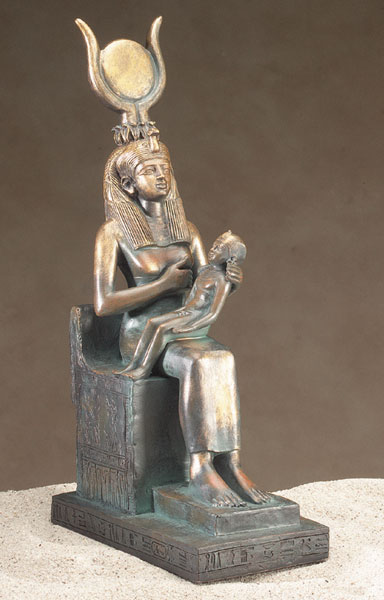MORE>>>>>>
Can We Pray to Jesus?
by Dr. Mark Bird April 18, 2012
Semi-technical
author-mark-bird church-history god jesus-christ prayer trinity
Abstract
Students have asked me in one way or another: Is it wrong to pray to Jesus? These students, unlike Jehovahs Witnesses, for example, believe that Jesus is God. So the question, put more precisely, is Has God the Father reserved prayer to be directed only to Himself, despite Christs claims of equality? This article will present evidence from Scripture, primarily, and tradition, secondarily, that it is appropriate and even important to address Jesus in prayer.
Introduction
Once while doing a weekend seminar on the cults, I took a few students on a field trip to a Kingdom Hall. That Sunday morning, a Jehovahs Witness leader gave the Bible lesson on prayer. One of his major points was that Jehovah has not delegated prayer to the angels or to Jesus. Jehovah has reserved prayer only for himself. After the service, I asked the leader to explain why we should only pray to the Father, and not to Jesus. He said that it was because Jesus is not Almighty God, and only God is to be worshipped. Of course, I reject that reason for not praying to Jesus, as would all evangelicals, since Jesus is God.
It is not just Jehovahs Witnesses that argue for only praying to the Father. I have also heard a few evangelical Christians argue that we should not pray to Jesus.1 One argument made for this position is that the Lords Prayer is addressed to the Father and not to the Son. However, it is precisely because Jesus is a divine Person that we can (and should) pray to Him.
One of the students I taught at that weekend seminar shared with me that for years she had taught her children only to pray to the Father, since that is what she was taught by an influential evangelical teacher. But this family practice gradually lapsed into prayers to both the Father and the Son since praying to both seemed so natural for the kidsand the parents. My student wanted to know what I thought about the issue. Other students have asked in one way or another: Is it wrong to pray to Jesus? This article will respond to that question.
The Lords Prayer
Does the fact that this model prayer addresses the Father and not the Son mean that we are never to address the Son (or the Spirit) in prayer? No. By giving us a model prayer, Jesus did not limit our prayers to a certain structure or verbiage. Otherwise, we would need to eliminate using the words in Jesus name, since they do not appear in the Lords Prayer. We would also need to eliminate thanksgiving from our prayers, since that does not show up in the Lords Prayer. But obviously, we should give thanks to God in our prayers (1 Thessalonians 5:1718). Christ's words, Our Father which art in Heaven don't keep us from praying to Jesus any more than his words Give us our daily bread keep us from praying for something to drink. Furthermore, it would have been a bit odd for Jesus to pray to Himself instead of the Father. We learn a great deal from this prayer, but it does not teach us everything we should know about talking to God.
It is appropriate to pray to the Father directly; the Lords Prayer clearly shows that. However, just because we are permitted to pray, and even commanded to pray to the Father, doesnt mean that we are not permitted to pray to the Son.
New Testament Christians everywhere praying to Jesus
According to the apostle Paul, New Testament Christians were everywhere praying to Jesus. Paul. . . to the church of God in Corinth, to those sanctified in Christ Jesus and called to be holy, together with all those everywhere who call on3 the name of our Lord Jesus Christtheir Lord and ours (1 Corinthians 1:12).4 It appears that Paul includes himself among those who called upon the name of Jesus. These prayers directed to Jesus were universal. And the present tense of call suggests that the prayers were on-going.5
Other examples of prayers to Jesus
There are other examples of appropriate prayers to Jesus in the New Testament.
10 Stephen prayed, Lord Jesus, receive my Spirit (Acts 7:59). At Pauls conversion, he prayed to Jesus: Lord, what wilt thou have me do? (Acts 9:6). Ananias conversed with Jesus when Jesus spoke to him in a vision (Acts 9:1014). And the very last prayer in the New Testament is addressed to Jesus by the Apostle John: Even so come, Lord Jesus! (Revelation 22:20). If it were wrong to petition Christ, John the inspired writer may have said, Father, may the Son come. But instead he gave us these words to also cry out to Jesus: Even so, come!
The last verse referred to may allude to the phrase, Maranatha (found in 1 Corinthians 16:22), which is usually translated as the petition, Come, O Lord. Maranatha is an Aramaic expression that originated before Christians had filtered throughout the Gentile community. It seems that very early on, the Christians were crying out to Jesus, Come, O Lord!11 This was a prayer of petition.
Praying to the Father, through the Son, in the Holy Spirit
There is a sense in which all of our prayers, even ones we pray to the Spirit or the Son, are ultimately directed to the Father, who is the Head of the Trinity (John 14:26; 1 Corinthians 11:3). It is through Christ that we have access to the Father. And we pray in the Spirit to the Father. For through Him we both have access by one Spirit to the Father (Ephesians 2:18). The Spirits role is important. Romans 8:26 says that the Spirit helps us in our weakness: For we do not know what we should pray for as we ought, but the Spirit Himself makes intercession for us with groaning which cannot be uttered. So we are to pray in the Spirit and through Jesus (on the basis of what He has done for us, and in His authority). However, to actually pray to the Spirit or to the Son while praying in the Spirit does not delegitimize our prayer. When we pray to the Spirit we are still praying to God. And when we pray to Jesus in His authority, we are still praying to God, and in a sense to the Father Himself.
Because prayers directed to the Father are so common in the New Testament, it is certainly appropriate to address the Father on a regular basis (we should pray to him often). But I am confident that God is not counting our prayers to each member of the Trinity to make sure we have prayed to each one in proper proportion. The Trinity is not jealous of one another. Of course, if we are leaving one member of the Trinity out completely, then there may be a problem with our view of that member of the Trinity. Communicating to each Person in the Godhead is important for having fellowship with our tri-personal God.
The Sinners Prayer: Praying to Jesus to enter into a relationship with Him
If you have ever prayed with someone to receive Christ, you may have quoted John 1:12 (But as many as received him [Jesus], to them gave he the right to become the Sons of God). You may have encouraged the sinner to acknowledge Jesus as Lord and ask Him for forgiveness of sins. This is very important for the sinner to do. If you believed it were inappropriate to pray to Jesus, you would not ask the sinner to pray to Jesus.16 But
Concluding Remarks
believing it is proper to pray to Christ, you encourage the sinner to say a prayer to Him. This prayer to Jesus will be the beginning of a lifetime of fellowship between this new Christian and his Savior, whom he can commune with every day.
Because Jesus is so interested in having a personal relationship with each of us, we as Christians would make a serious mistake to feel as though we shouldnt address the Son (and even the Spirit) in prayer. A personal relationship with Jesus naturally involves communing with Him, expressing commitment to Him, expressing ones dependence on Him, asking for His help, etc. But it is important to cultivate a healthy relationship with Jesus, as well as with the Father. Truly our fellowship is with the Father and with his Son Jesus Christ (I John 1:3b). All the members of the Trinity share the same desires, one of which is to have a personal relationship with us. All share the same divinity and thus are worthy of worship, and each ought to be verbally praised. Each deserves expressions of adoration and submission.
There is no prohibition in the Scriptures against praying to Jesus. Taking requests to Jesus himself is modeled in Scripture, and addressing Jesus in praise and adoration is commanded. Therefore our prayers need not be restricted to God the Father. As God, Jesus is worthy of praise and is able to answer prayer. All persons of the Trinity ought to be included without hesitation in our prayers to God.






